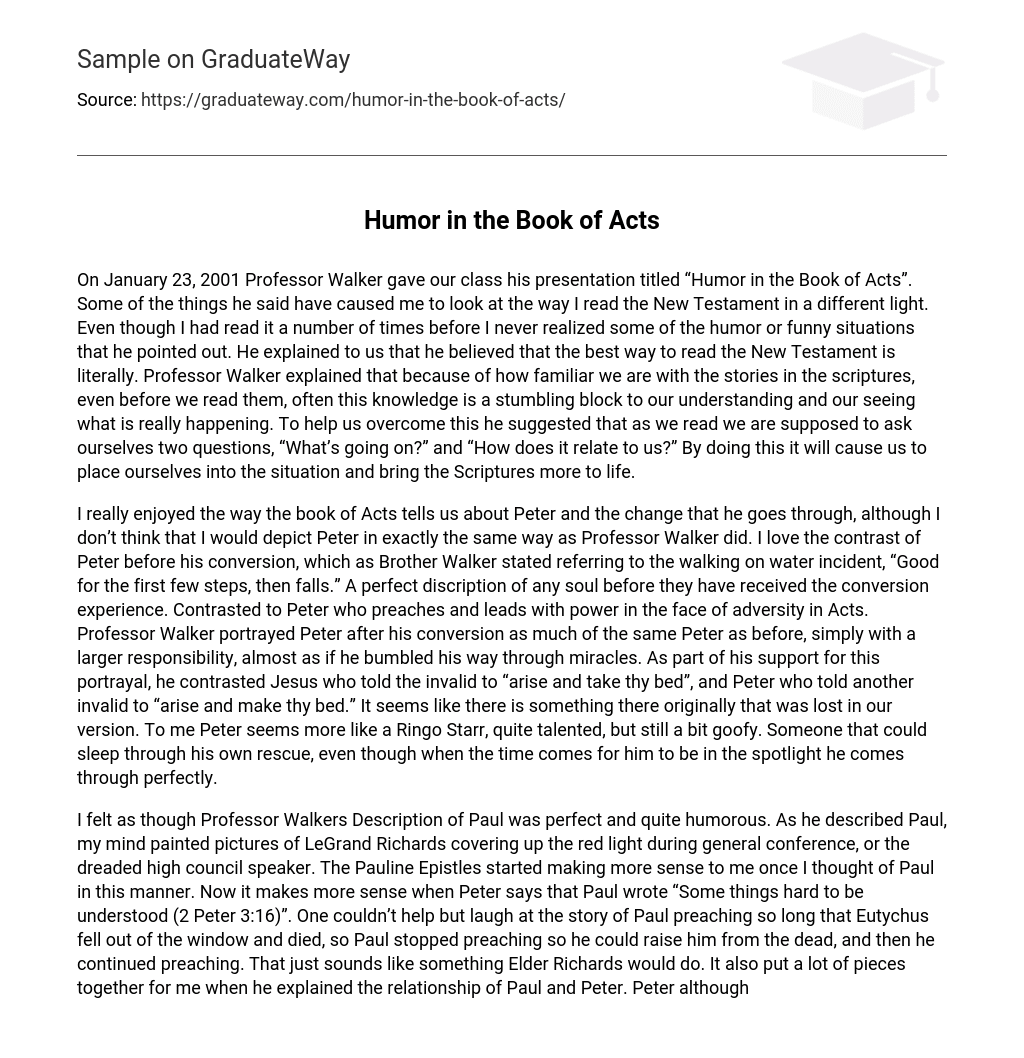Professor Walker’s presentation, titled “Humor in the Book of Acts,” on January 23, 2001, had a profound impact on me. Despite multiple readings of the New Testament, I had never recognized the presence of humorous situations within it prior to his enlightening insights. The professor underscored the significance of approaching the New Testament literally and elucidated how our familiarity with its stories can sometimes impede our comprehension. To truly grasp and appreciate what is transpiring, he recommended posing two fundamental inquiries: “What is happening?” and “How does it pertain to us?”. By actively engaging with these inquiries, we can deeply connect with the narratives and infuse more vitality into the Scriptures.
I enjoyed the portrayal of Peter and his transformation in the book of Acts, although I have a slightly different perspective than Professor Walker. I appreciate the contrast between Peter before his conversion, as described by Brother Walker, as someone who starts strong but then loses his way. It represents the experience of any soul before receiving conversion. On the other hand, in Acts, Peter demonstrates powerful preaching and leadership in the face of challenges. Professor Walker sees Peter after his conversion as essentially the same person with added responsibility, suggesting that he stumbled through miracles. As evidence, he compares Jesus instructing an invalid to “arise and take thy bed” with Peter instructing another invalid to “arise and make thy bed.” It feels like something may have been lost in our version of the story. In my opinion, Peter resembles Ringo Starr – talented but somewhat goofy. He could even sleep through his own rescue, yet when it’s his time to shine, he delivers flawlessly.
Professor Walker’s description of Paul was both perfect and humorous. It painted vivid pictures in my mind, like when LeGrand Richards covered up the red light during general conference or when the dreaded high council speaker took the stage. This new perspective helped me make more sense of the Pauline Epistles. Now I understand why Peter said that Paul wrote “Some things hard to be understood (2 Peter 3:16).” I couldn’t help but laugh at the story of Paul preaching for so long that Eutychus fell out of the window and died, and then Paul miraculously revived him and continued preaching. It reminded me of something Elder Richards would do. Additionally, I now have a better understanding of the relationship between Paul and Peter. Despite Peter not being as sophisticated or articulate as Paul, he was still in charge.
I am grateful to Professor Walker for devoting his time to our class, as it has enriched my understanding of the New Testament, particularly the Book of Acts.





